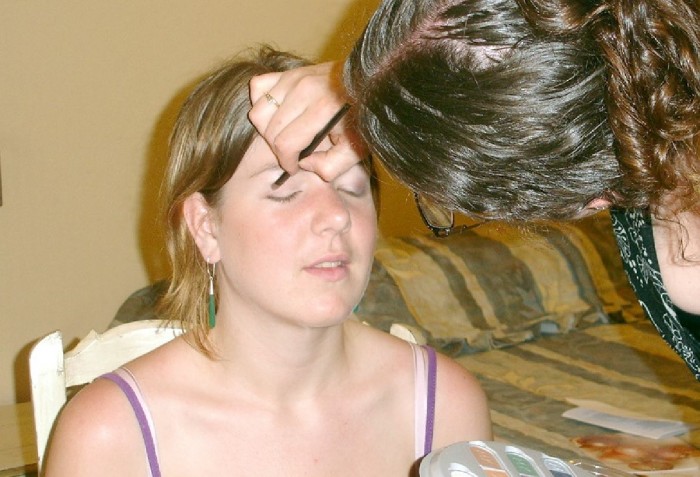Demonstrator
Kaiwhakaatu
Alternative titles for this job
Demonstrators show and explain goods and services to potential customers, and promote new lines of products and services.
Pay
Demonstrators usually earn
$24-$28 per hour
Source: careers.govt.nz research, 2023
Job opportunities
Pay
Pay for demonstrators varies depending on skills, experience and responsibilities.
- Demonstrators with up to three years' experience usually earn between minimum wage and $25 an hour.
- Demonstrators with three or more years' experience, or who work as team leaders, usually earn between $25 and $28.
Demonstrators are often self-employed and work on a casual or part-time basis.
Source: careers.govt.nz research, 2023.
- PAYE.net.nz website - use this calculator to convert pay and salary information
- Employment New Zealand website - information about minimum wage rates
(This information is a guide only. Find out more about the sources of our pay information)
What you will do
Demonstrators may do some or all of the following:
- set up and display products at shops, supermarkets, trade fairs or in homes
- cook and serve products
- invite people to try out or taste products
- explain the uses of products and answer questions
- invite customers to purchase products
- keep a record of sales.
Skills and knowledge
Demonstrators need to have knowledge of:
- the products or services they are demonstrating
- display, sales, and demonstration techniques
- food safety and hygiene
- health and safety regulations in the venues where they are demonstrating.
Working conditions
Demonstrators:
- often work part time, in evenings or weekends, and may work on call
- usually work in places such as shops, clubs and homes, and at events such as trade fairs
- may travel for work or training.
What's the job really like?

Jelena Zivanovic
Demonstrator
Confidence and a bright smile help to sell products
In-store demonstrator Jelena Zivanovic says she aims to make people smile when she's trying to sell products. "You need to have a bit of humour. You just put on a bright smile.
"I've also had to learn how to speak up and be out there and really grab people’s attention."
From perfume to washing liquid – Jelena promotes a variety of products
Jelena visits shops and supermarkets, promoting everything from perfume and pancakes to toilet flush and washing liquid.
Before each job, in-store demonstrators receive a kit and learn about the product. "We arrive at the location, bring the kit into the store, and find the appropriate manager to see where they would like us to set up. We do a stocktake of shelves or see what’s in the back, then we can start setting up and start selling."
Jelena lets clients know if customers are satisfied with a product or have any suggestions about it. "We promote products for different clients, gathering feedback from customers."
Jelena says she sets herself a challenge with every new job. "I try to see if I can sell a bit more the next day."
Entry requirements
There are no specific requirements to become a demonstrator. However, a driver's licence may be useful.
A Safe In-Store Pass that covers food-handling skills may be useful for demonstrators who want to work in supermarkets.
Secondary education
No specific secondary education is required for this job, but English, maths and home economics (food and nutrition) to NCEA Level 2 are useful.
Personal requirements
Demonstrators need to be:
- good at answering questions and presenting
- confident about approaching and engaging with people
- friendly and polite
- able to relate to people from a range of cultures and backgrounds
- patient, as they often have to deal with repetitive questions.
The main thing is personality – whether you’re outgoing or capable of being outgoing. You need to be able to excite people about different products.

Jelena Zivanovic
Demonstrator
Useful experience
Useful experience for demonstrators includes:
- customer service, retail or sales experience
- experience working with the product they are demonstrating.
Physical requirements
Demonstrators need to:
- have a neat and tidy appearance
- be able to speak clearly
- be reasonably fit and healthy, because they spend long periods on their feet, and may have to do some lifting.
What are the chances of getting a job?
High turnover means demonstrator vacancies are common
Demonstrator vacancies are common because people tend to leave the job after a short time. This is because:
- demonstration work is often part time and seasonal, as new products are usually launched in spring and around Christmastime
- the job is often seen as an entry-level position, and once people gain experience they move into other retail positions.
About 3,000 people work as demonstrators in New Zealand, according to the Direct Selling Association of New Zealand.
According to the Census, 4,827 demonstrators worked in New Zealand in 2018.
Types of employers varied
Most demonstrators work for cosmetics, food, wine and cookware companies, or for advertising agencies.
Demonstrators are often self-employed and work on a casual or part-time basis.
Sources
- Coffey, C, managing director, The In Group, careers.govt.nz interview, 2018.
- Stats NZ, '2018 Census Data', 2019.
- Wyllie, G, executive director, Direct Selling Association of New Zealand, careers.govt.nz interview, March 2018.
(This information is a guide only. Find out more about the sources of our job opportunities information)
Progression and specialisations
Demonstrators may progress to manage a group of demonstrators, or move into merchandising and promotions, or sales representative work.
Last updated 31 March 2025

